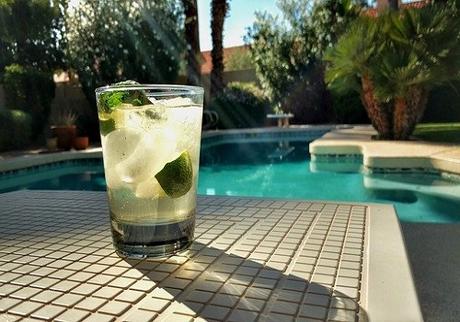What is a Gunite Pool?
Gunite swimming pool uses a strengthening framework that is splattered over with a concrete and sand mixture. The approach is preferable over a regular poured concrete pool that requires a timber framework to maintain the structure of the basin. Gunite is fantastically durable, so swimming pools made of this substance are constructed to last.
Gunite concrete is a frequent preference for in-ground pool development. The usage of traditional concrete forms, reinforcement, and building practices. The fee to set up a common Gunite pool relies upon fabric and end grade, completed floor place and cloth volume, coaching and specific needs, and the labor rate.

How Durable Gunite Pool is?
Gunite is relatively durable, so swimming pools made of this substance are constructed to last. Unlike fiberglass pools, gunite swimming pools can be made on-site which lets in for greater flexibility and is less difficult to install. Gunite swimming pools are distinctly long-lasting and do no longer require a liner. This permits the pool to seem to be higher and hold its structure over time. This kind of pool lasts for a longer time due to the fact of its durability, which makes it a suitable funding on your property for the reason that it reduces future expenses.
Is Gunite Pool an Ideal Pool?
A gunite pool is ideal because of its outstanding format versatility. These swimming pools close the longest of all inground swimming pools and regularly function better warranties. Gunite swimming pools do not need timber frameworks to maintain the shape, so constructing is less difficult than widespread concrete. The swimming pools can put up with loads of strain and stress. This ensures the safety of your property and an outdoor oasis from damage. Gunite swimming pools want much less preservation and are the best selections for house owners in search of to replace their properties. Gunite swimming pools are handy in any dimension or shape.
Gunite vs Shortcrete Pool
When talking about gunite vs shortcrete, it all comes down to when the material is mixed.
In gunite, before putting into a hopper all of the dry materials are already premixed. Compressed air is then used to send that down the line towards the operator in which the water is introduced and the force of it allows the material mixed to hit the wall that creates compression resulting in material sticking in place, either on the wall or the floor of the pool.
In terms of shotcrete, all are already mixed ahead of time. The dry materials along with the water are all put into the hopper. They are similar to concrete that we normally saw. So the wet and dry materials are all placed together into the hopper and then through a compressional pump it comes out of the gun at the end or the tube, hits the floor or wall of the pool, and the compression at the last second makes the material stick.
So, why one over the other? Both produce good concrete pools suitable for any backyard installation. It all comes down to the preference of the homeowner whether to go with Gunite or shotcrete pool.
Conclusion
To preserve the gunite pool in the satisfactory structure possible, take into account that ordinary preservation is vital. Having suitable chemical substances and quantities can make a large distinction in how lengthy your plaster will last. Also, be certain to lighten the filter often due to the fact that the motor can burn out if it turns into too clogged. A pool is a lifelong investment, so you have to be certain of any questions you have and make sure that all of your questions will be answered before opening your pool project. I hope this article has helped set you on the proper tune and you are able to assess what will be an ideal swimming pool for you.
